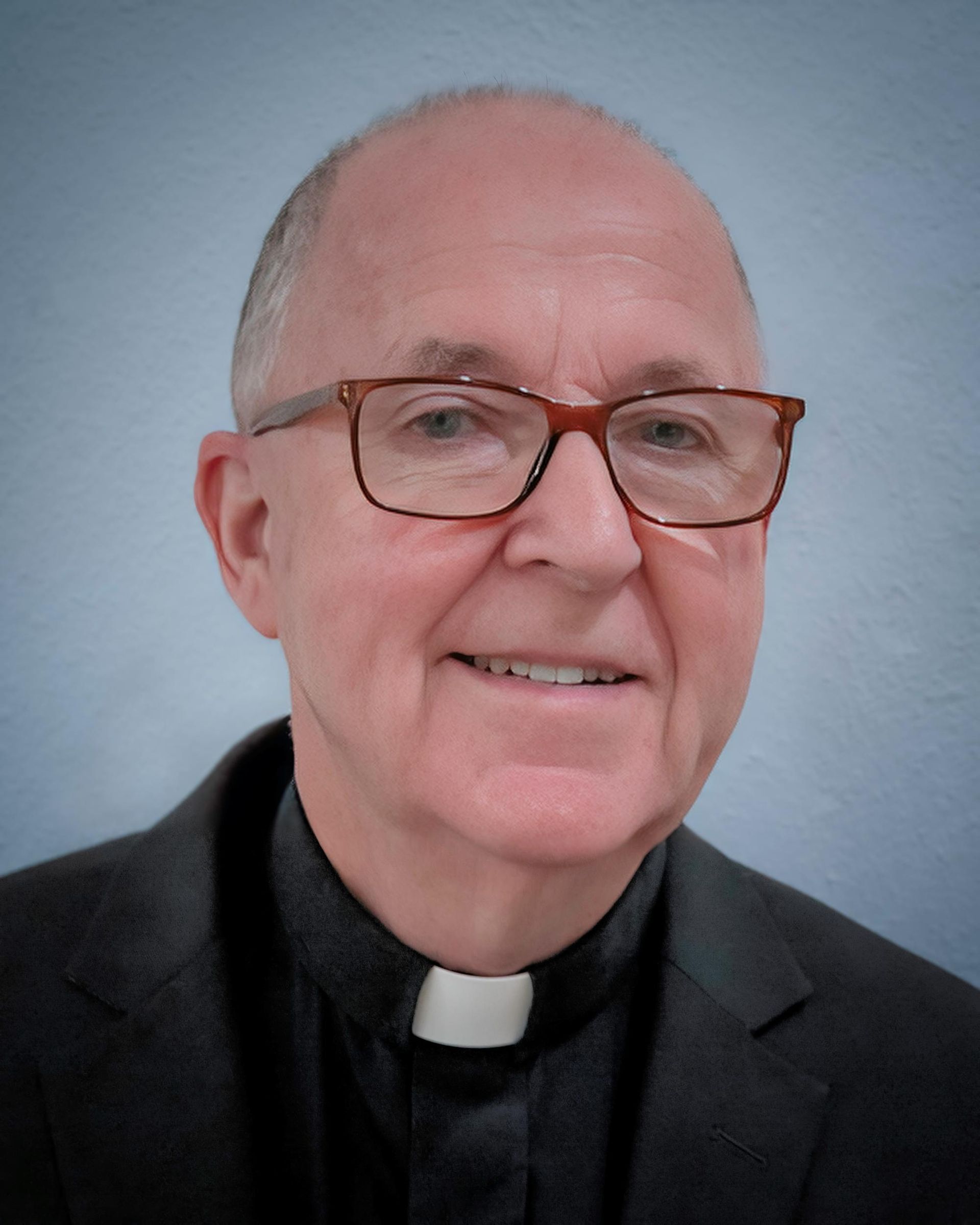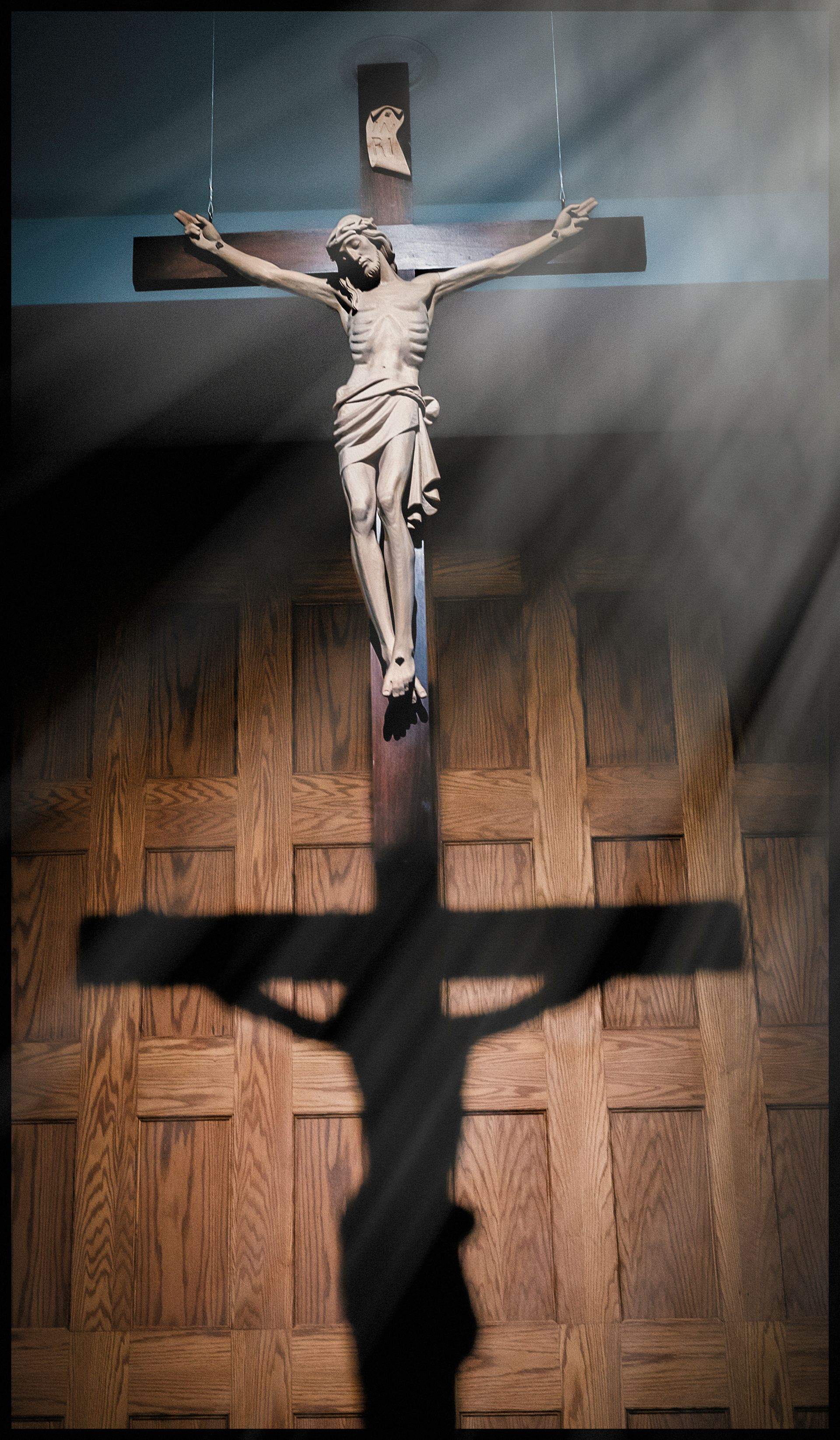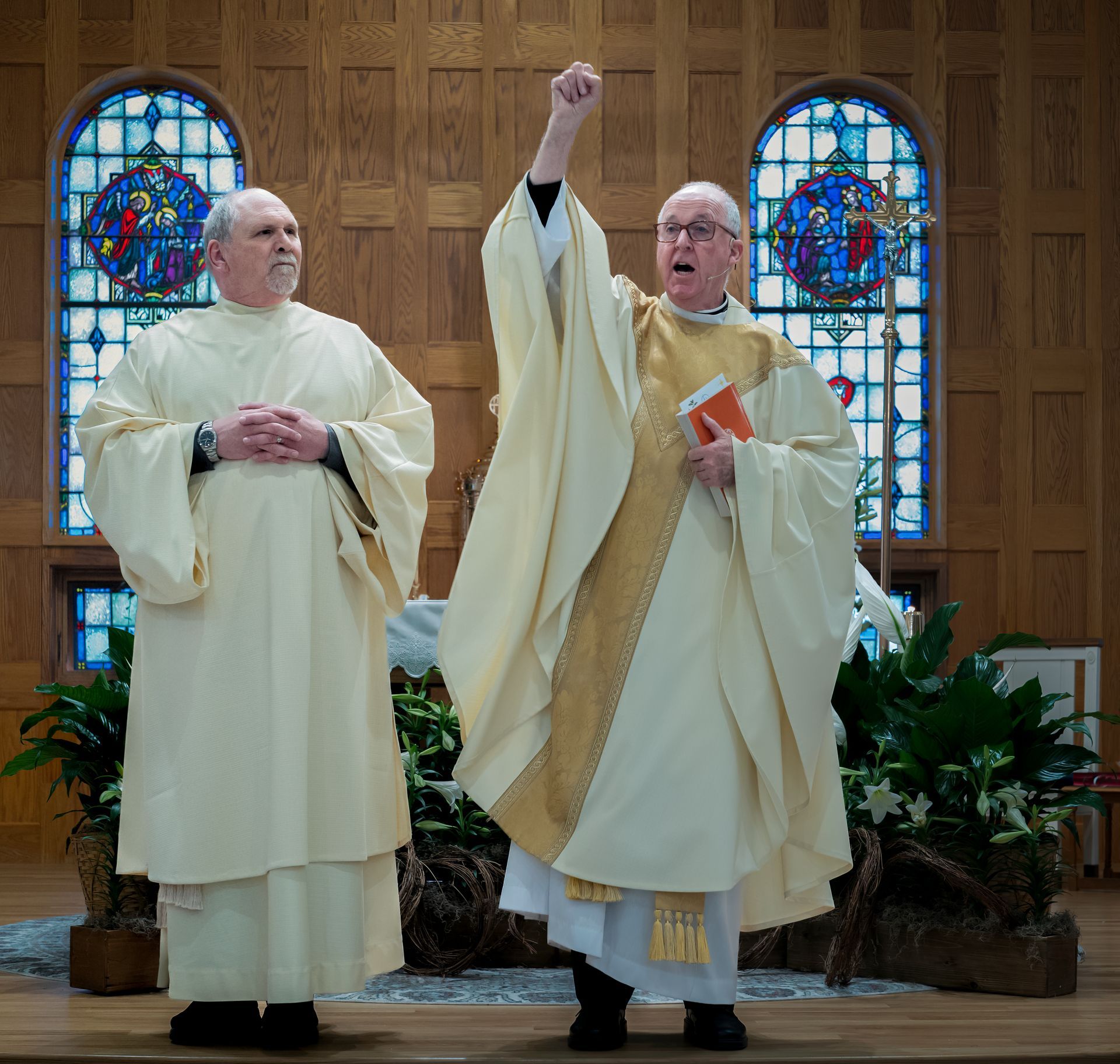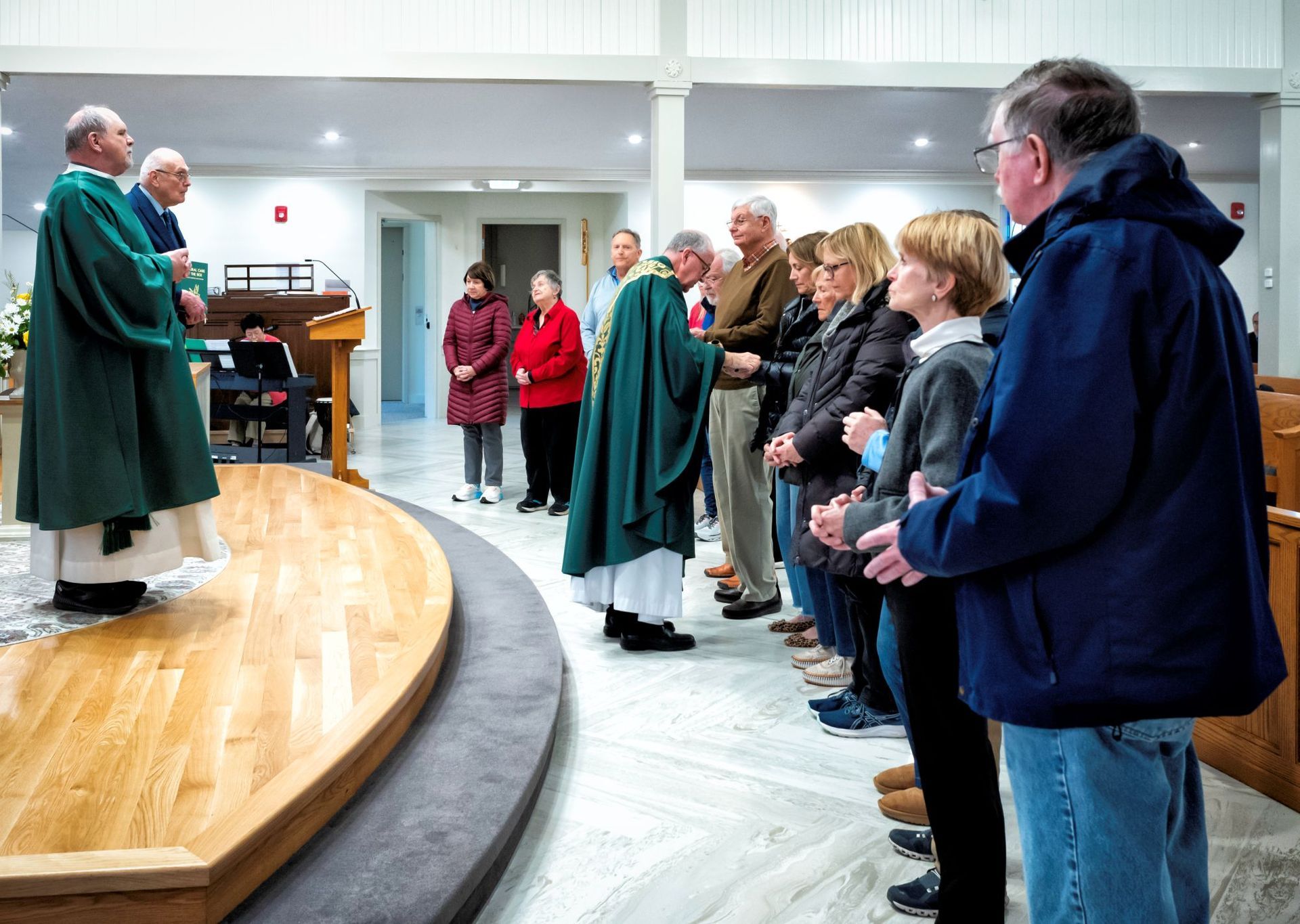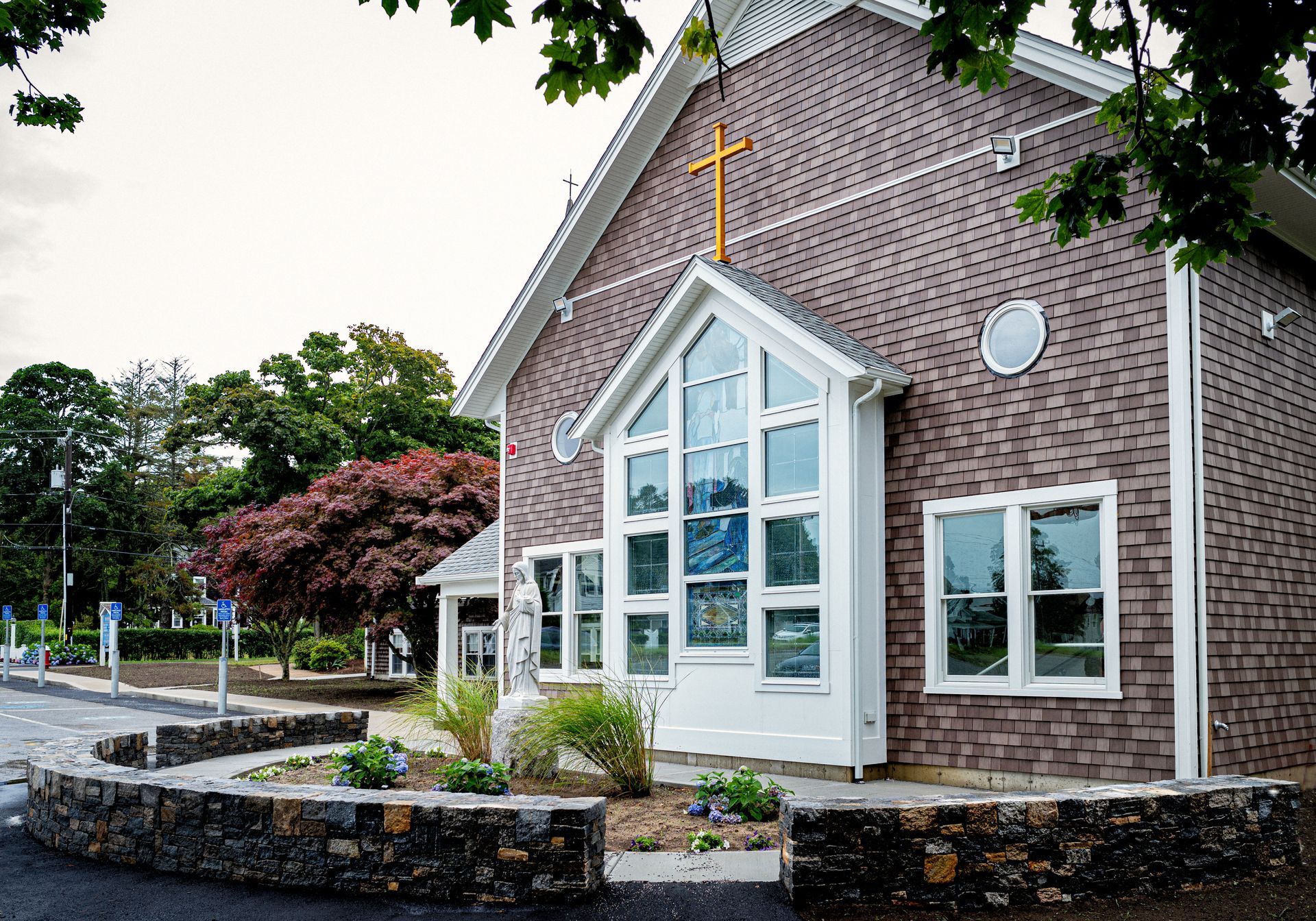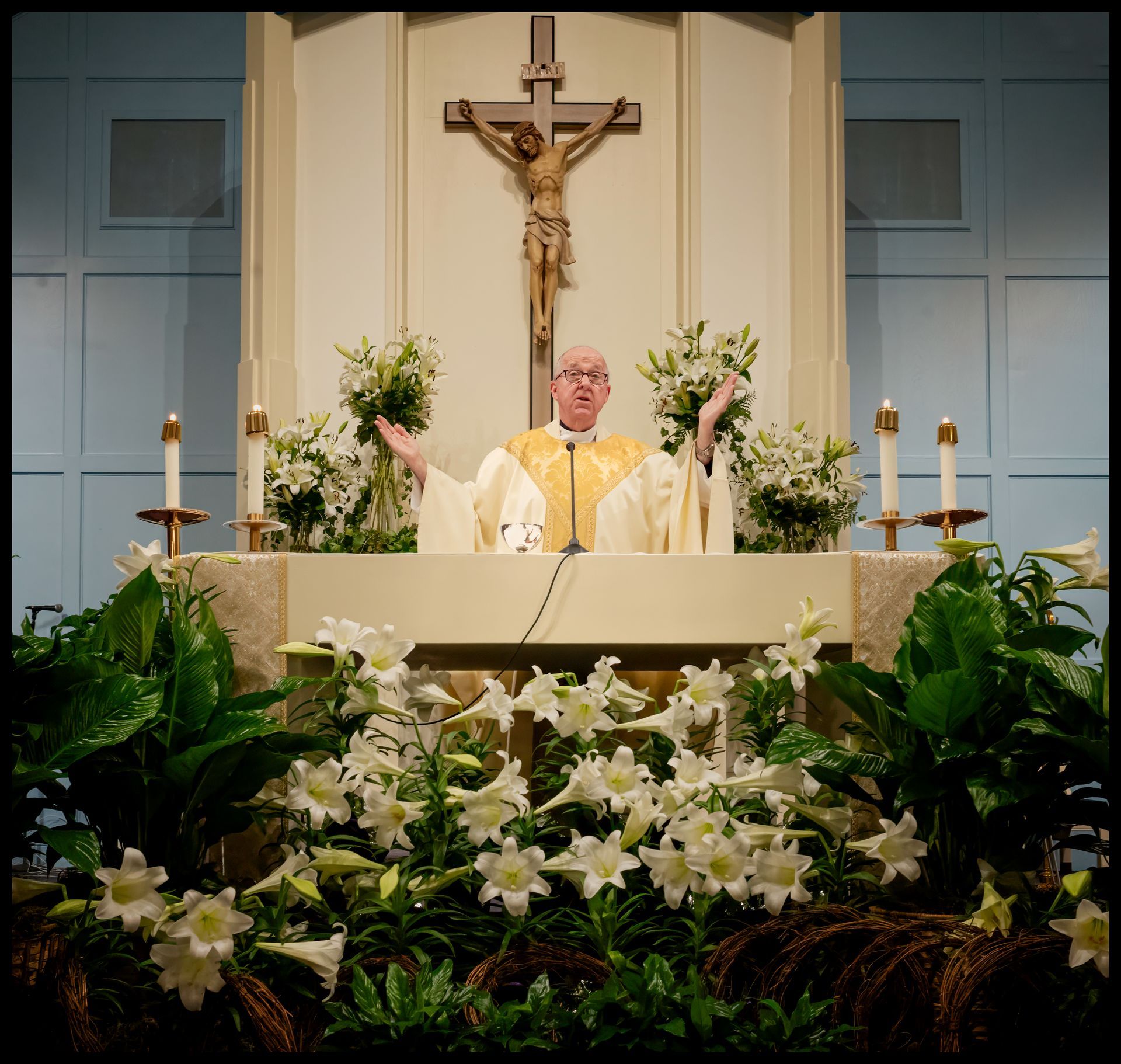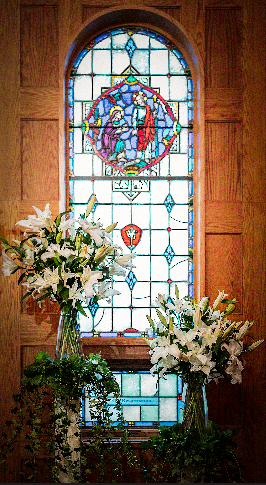31st Sunday of Ordinary Time
31st Sunday of Ordinary Time- Fr. John Sullivan Homily
All of us have silly places in our lives where we feel we must exercise control. Maybe we require family and guests to put dirty dishes in the sink or on the counter because not everyone has the proper skills to put them in the dishwasher properly. Our sock drawer is another place where we need to have complete control. The black ones are on the right, the blue ones are on the left, and the argyles in the middle. Maybe we are the type of person who must be the driver everywhere we go. These are small situations, and our control over them mostly does no harm.
Then, some of us must be in control over more critical areas. Over the last few weeks, our homilies have been looking into those areas. We first looked at control of our material goods. The gospel presented the story of the rich man who approached Jesus and asked what he needed to do to enter the Kingdom of God. He claimed he devotedly followed all the commandments. Jesus asks him to sell his possessions and follow him. The man left sad because he didn’t want to give up control over his wealth to follow our Savior. Not even our material things can hinder our following Jesus.
Next, we examined how the desire for power and prestige can control our actions. Two apostles approached Jesus and asked for places at his right and left when he entered his kingdom. They wanted to be powerbrokers when Jesus began his reign. Jesus told them honor in his kingdom comes when we relinquish control and are servants to others.
Last week, we looked at how concern for our self-image can block our getting the fullness of life. Bartimaeus, a blind beggar, wouldn’t let his image stand in the way of his receiving new sight from Jesus. He wouldn’t let his image of someone on the margins of society block him from coming to Jesus, receiving sight, and following Jesus on the way. We can’t let what others think of control us.
Needing to control these more critical areas can damage or stifle the growth of our relationships with others and, most of all, with God. We need to loosen our grip on these areas of our lives so we can have better-quality relationships with others. Relationships that nurture our well-being. We must be willing to give up control of some critical facets of our lives to grow our relationship with God.
This week, we’ll be considering our tendency to want to control other people. I’m not referring to wanting to influence others. Influencing other people is a part of our human nature. Helping others by sharing our wisdom, knowledge of a similar situation and telling what we have learned from our mistakes is laudable. Offering guidance to our children and those less experienced than ourselves is necessary for the development of the world. We must help guide others on the right path. Our trying to influence others is a sign of love and caring for others. Our efforts to prevent others from making bad decisions and going down the wrong path should be commended.
A problem arises when our caring turns to controlling. When trying to influence others turns into forcing them to do our will, that is when the problems begin. When we use fear or intimidation to carry out our will, conflict can’t help but arise. Attempting to control people usually backfires. Everyone can become frustrated and try to strike out, and any attempt at a relationship of love dies, and we end up driving people away from us.
I’m not trying to suggest we don’t become involved in each other’s lives. I don’t want to suggest isolating ourselves from others, having a hands-off attitude towards our interactions, or letting others thoughtlessly enter situations that will harm them. We can’t watch unsuspecting people drive off a cliff. We must fulfill our legitimate need to influence the behavior of our loved ones, but we have to guard against becoming controlling of their behaviors.
In today’s gospel, Jesus has just faced down people who tried to control him. Last week in the gospel, we hear that Jesus is on the final leg of his journey to Jerusalem. He is part of a large crowd of pilgrims going to the Holy City to celebrate Passover. Jesus’ objective is different from the others. He goes to Jerusalem to experience his passion and death.
Today’s gospel places Jesus in the Temple. We have jumped over two whole chapters of Mark’s Gospel. Those pages told of Jesus’ triumphant entrance into Jerusalem and the acclaim he received from the crowds. We missed hearing how he went to the Temple, saw the moneychangers and animal sellers desecrating the sacred place, and chased them away.
His actions angered the religious authorities, who began to believe Jesus was a threat to their control of religious life. In an attempt to retain control, they tried to humiliate Jesus. The chief priests, scribes, and elders approach Jesus to question his authority. Different groups present numerous questions to try to trip up Jesus, hoping he will lose honor among the people. Nothing works, and they all go away shamefaced, fearful they might lose power and control.
Finally, in today’s gospel, we hear of another scribe who comes to question Jesus. Scribes were well-educated men who studied the Law of Moses and were experts in it. This one is different, and his heart is more open to Jesus and God. Apparently, he has been listening and seems impressed with Jesus’ answers to the powerbrokers.
His question is tricky, but it isn’t meant to control Jesus. He seems more sincere. He asks, “Which is the first of all the commandments?” This question was often posed to the rabbis and was considered the test of their excellence as teachers. The scribe seems open to possibly surrendering his sense of control as someone knowledgeable in the law to follow the humble rabbi, Jesus, out of love. He asks his question before he makes a final decision to follow Jesus.
Jesus answers:
Hear, O Israel!
The Lord our God is Lord alone!
You shall love the Lord your God with all your heart,
With all your soul,
With all your mind,
And with all your strength.
The second is this:
You shall love your neighbor as yourself.
For the first time, Jesus combined the obligation to love God with our love of neighbor. It was revolutionary and has become the summation of the core principle of the Christian life. Jesus said we practice the love of the God, we cannot see central to our lives when we love the neighbor we can see regardless of their race, color, creed, or political leanings.
Jesus said we can have only one thing central in our relationship with God and others. We can try to control or love God and our brothers and sisters. God did not create us to control us and make us love God. God created us to have free will and the ability to choose to love God.
The love of God is more than a sentimental attachment. Love of God is total loyalty and our surrender to God. St. Paul describes love in chapter 13 of his First Letter to the Corinthians.
Love is patient, love is kind. It is not jealous, is not pompous, it is not inflated, it is not rude, it does not seek its own interests, it is not quick-tempered, it does not brood over injury, it does not rejoice over wrongdoing, but rejoices with truth. It bears all things, believes all things, hopes all things, endures all things. Love never fails
Love is the opposite of control. Since God is love, God is the opposite of control. God is for freedom, and freedom comes through God’s love and the love we show our neighbor.
Mark tells us that Jesus praised the scribe and told him he was not far from the kingdom of God. That would be a happy ending, but Mark doesn’t end the story there. He ends the story by telling us,
And no one dared to ask him any more questions.
Sadly, they didn’t ask more questions because they were unwilling to surrender their sense of control. They lack the love and desire to be faithful to Jesus. That failure will send Jesus to the cross in just a few days. God will not be controlled. A loving God, the Father will show power by raising Jesus from death and promising that we who don’t try to control God but work to deepen our relationship of love of God through prayer will share the same resurrection and the gift of eternal life.

